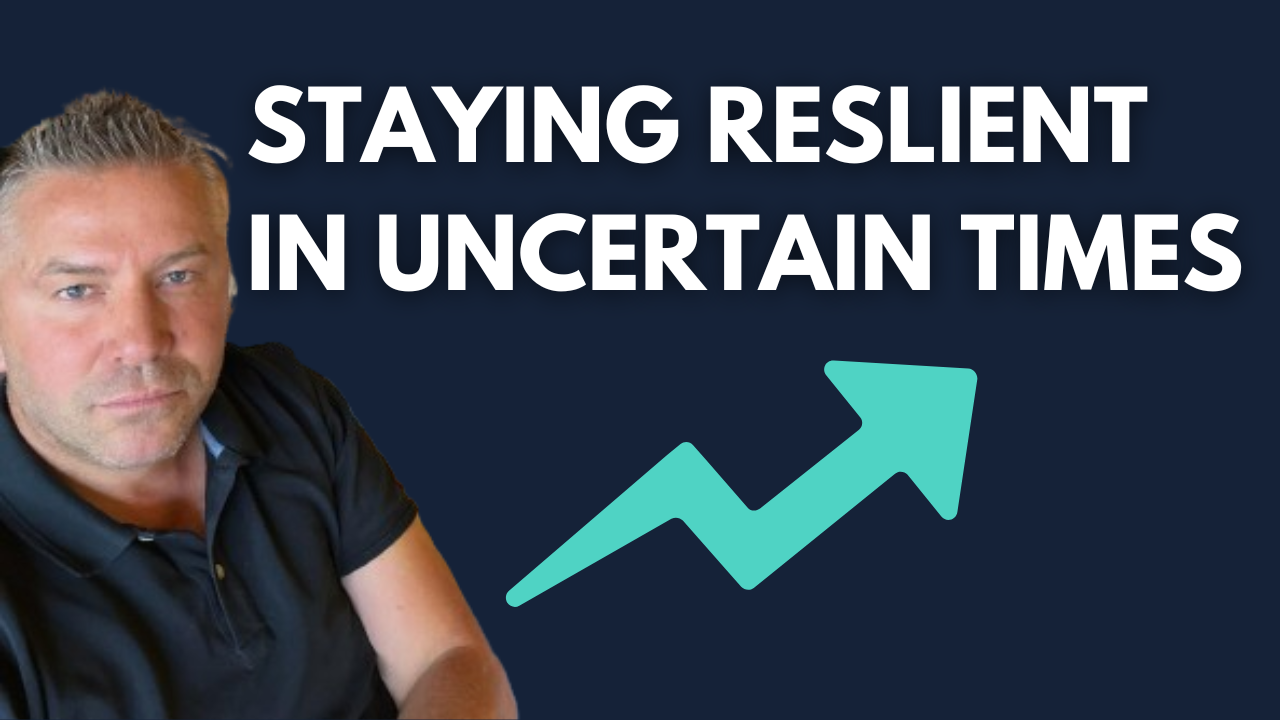In the ever-evolving tapestry of life and career, change is the only constant. The ability to not just withstand but thrive amid this flux is a testament to one’s resilience. This resilience, particularly in uncertain times, is akin to navigating a ship through stormy seas, where the strength of the hull and the skill of the navigator determine the journey’s success. “Resilience in the Face of Change” delves into the essence of maintaining momentum when the waters of life and career become turbulent, offering strategies to fortify your resolve and keep moving forward.
Understanding Resilience

Resilience is the psychological elasticity that allows individuals to bounce back from setbacks, adapt to change, and keep going in the face of adversity. It’s not an innate trait but a skill, cultivated through experiences and conscious practice. Resilient individuals possess a unique perspective on challenges, viewing them as opportunities for growth rather than insurmountable obstacles. This mindset is crucial in uncertain times, serving as a beacon that guides through darkness and doubt.
Cultivating a Mindset of Resilience
The foundation of resilience lies in the mindset. A growth-oriented perspective, where challenges are seen as temporary and surmountable, fosters resilience. This mindset encourages embracing change as a part of the growth process, understanding that the path to success is often paved with trials and errors. Cultivating such a perspective requires introspection, awareness, and the deliberate practice of positive thinking and gratitude. Recognizing your past successes and the obstacles you’ve overcome can bolster your confidence in facing current challenges.
Strategies for Building Resilience
Embrace Flexibility
In uncertain times, rigidity is the enemy. Flexibility—being open to changing courses, adapting plans, and revising goals—is paramount. It involves letting go of the “how” and focusing on the “what.” Flexibility doesn’t mean aimlessness but the ability to pivot as circumstances evolve, ensuring that your core objectives remain in sight, even if the path to achieving them shifts.
Develop Emotional Intelligence
Understanding and managing your emotions, and empathizing with others, are critical components of resilience. Emotional intelligence allows you to navigate the highs and lows with equanimity, maintain positive relationships, and communicate effectively, even in stressful situations. It’s about acknowledging your feelings, understanding their origins, and using that knowledge to respond to challenges constructively.
Strengthen Your Support Network
No man is an island, and in times of change, having a strong support network is invaluable. These connections provide emotional support, practical advice, and different perspectives that can help you navigate uncertainty. Whether it’s family, friends, mentors, or professional contacts, nurturing these relationships ensures you have a safety net when the going gets tough.
Prioritize Self-care
Maintaining momentum doesn’t mean pushing yourself to the brink. On the contrary, resilience requires self-care. Physical well-being, mental health, and emotional stability are interlinked; neglecting one can topple the others. Regular exercise, healthy eating, adequate rest, and mindfulness practices like meditation can enhance your overall resilience, ensuring you’re in the best shape to tackle challenges.
Keep Learning and Growing
Adaptability in the face of change often requires new skills, knowledge, or perspectives. A commitment to lifelong learning—not just in your professional field but in personal development, too—ensures you’re equipped to adapt to new challenges. This could mean formal education, self-study, or experiential learning. The key is to view every experience as a learning opportunity, even (or especially) the difficult ones.
Set Realistic Goals and Take Action
Resilience is fueled by purpose. Setting realistic, achievable goals provides direction and motivation, offering a sense of accomplishment even in small victories. Breaking larger objectives into manageable tasks and taking consistent action towards them can maintain momentum, even when the future seems uncertain. Celebrate each achievement, no matter how small, to bolster your confidence and resilience.
Navigating Change with Resilience
Change, particularly when it’s sudden or significant, can feel like a storm that threatens to derail your plans and aspirations. However, with resilience, it’s possible to not only survive these storms but to emerge stronger and more focused. Resilience is about maintaining your core integrity—your values, goals, and sense of self—while adapting your strategies and actions to meet the challenges head-on.
It requires a balanced approach, combining self-awareness, emotional intelligence, and practical strategies to navigate the complexities of change. By embracing flexibility, strengthening your support network, prioritizing self-care, continuously learning, and setting realistic goals, you can build the resilience necessary to maintain momentum, no matter what challenges you face.
In conclusion, resilience in the face of change is not a passive endurance but an active engagement with life’s uncertainties. It’s a dynamic interplay of mindset, skills, and actions that enables individuals to navigate through turbulent times with grace, determination, and an unwavering focus on their goals. By cultivating resilience, you not

